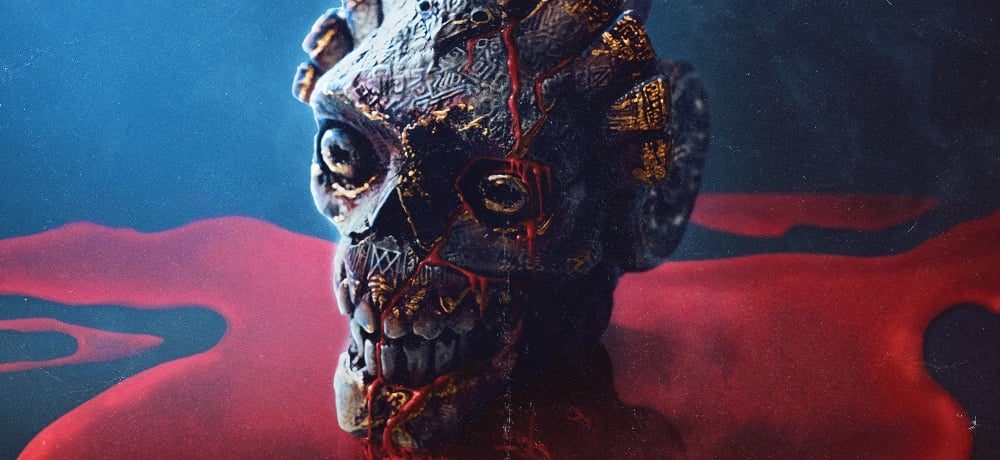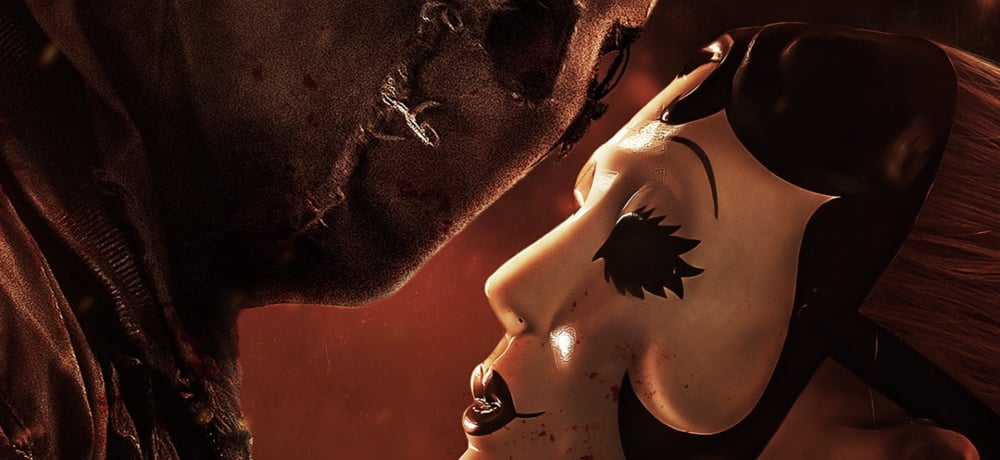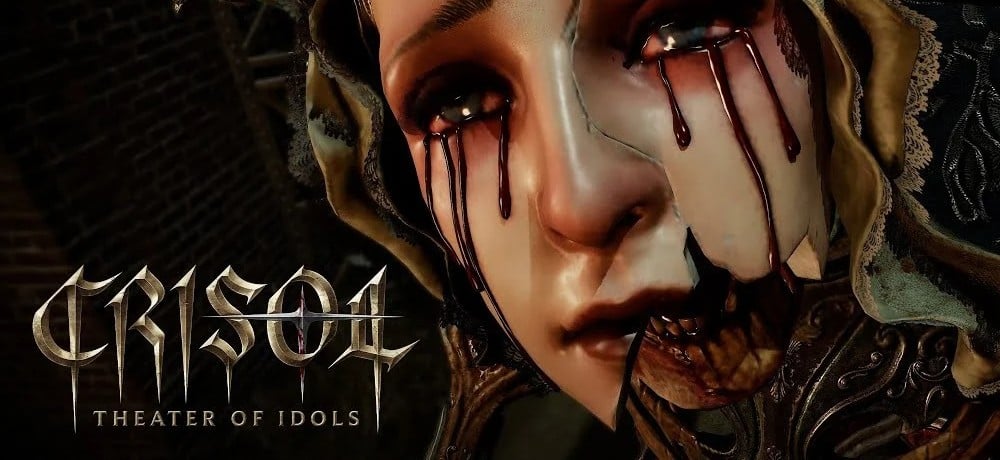





With his feature film debut, director Grant Sputore introduces us to a future where all of humanity has been wiped out, leaving only the planet’s robotic residents behind. One of those androids, Mother (voiced by Rose Byrne, and performed by designer Luke Hawker), is tasked with reviving the human race, and spends 18 years raising Daughter (Clara Rugaard) inside a hidden bunker tucked away in the mountainside. As Daughter learns about morality and other life lessons from her artificial parental unit, a mysterious woman shows up, forcing the teenager to question everything she’s been taught, and whether or not she can exist beyond the realm of her Mother.
While at the 2019 Sundance Film Festival, Daily Dead spent some time chatting with Sputore about how real-life technology inspired I Am Mother and whether or not he sees society headed down a dangerous path with our over-reliance on all our gizmos and gadgets. The up-and-coming filmmaker also discussed putting together the strong female cast for the film, the importance of utilizing practical effects to bring Mother the robot to life, and more.
With this story, there are these ideas about human connectivity, and what it is to be human, and where we are headed with technology, which I found really fascinating. It just doesn't seem like we're headed towards a good place, and I was wondering if that was in the back of your mind coming into this film?
Grant Sputore: It could really go either way, couldn't it? And we hope for the best, of course. It becomes a multilayered question really fast, because I find so much of what's in the film deeply fascinating. But the very origin of it was just the idea of being raised by a robot, and what it would be like to grow up without human parents, and what would the values of that machine be? And it's a really timely, pertinent, and important question because AI software is being developed at such a rapid pace. We're going to have to confront the question of what values do we instill in this machine that's going to be sentient and its own agent that can make decisions? What parameters will it make its choices on?
Basically, it becomes a philosophical question. How do you teach a machine to choose right from wrong? And it's not wildly different from questions a parent faces when they're raising a child. How do you teach a child what's right and wrong? How do any of us know what's right and wrong? The film becomes a kind of exploration of that, between philosophical ideals and religious concepts and ultimately trying to put those things into practice. Daughter, our lead character, has to make her own decisions. She has to decide what her values are independent of what she's been taught by her Mother.
Can you talk about working on the script with Michael [Lloyd Green]?
Grant Sputore: Well, we were actively looking to find that idea that Michael and I could turn into our first film. We've been collaborators for ten years now. We were just talking about what interested us, what was in the headlines, and what was going on in our personal lives. Everybody I know has kids now, and I was dealing with the question of whether I was ready to have a kid, and whether I was ready to be a father, and what all of that means. Did I have what it takes to be a good father and raise a good kid? And what does it even mean to be a good kid, you know? So, you go down that rabbit hole pretty quickly.
But once we had that idea and that image, it actually did come together very quickly. We had an outline drafted over a matter of days, and then the script within a couple of months. Then, we had a finished screenplay with multiple drafts that went out to the marketplace after about a year's worth of development, which we were really proud of. It got a massive reaction from Hollywood when we sent it out. People started sharing it around, and it ultimately got on The Black List, which is the highest honor that a non-produced screenplay can have, I'm told. So that certainly didn't hurt our chances of turning it into a film.
Can you talk about Mother in this? If this movie was made by a major studio, I feel like they would have just had a digital robot in there, and that's how they would have done this. And I love the fact that you use somebody inside the robotic suit. I just think that had to have added some real tangibility to that character.
Grant Sputore: Totally. I've been dreaming about making my first feature since I was stumbling around the house and making videos of my friends in the backyard, or watching movies all night with my dad. So, getting the chance to make my first film, I wanted it to be representative of everything that I loved in the movies that I've grown up watching, from the ideas and the genres explored and the tropes that we play with, down to the techniques that we use to make it. I grew up on the behind-the-scenes special features of films like Predator, Alien, RoboCop, and even The Lord of The Rings. I just really wanted to play with the practical magic of making a movie.
I get a great deal of satisfaction from the process and being able to work with practical effects. And you can't completely check that at the door when you watch the film. It's almost flung the other way, where once upon a time, people would comment on and be marveled by the incredible computer graphics in films. Now, you can't help but notice and be amazed by the practical magic of something like what we've done in Mother, or what they're doing in the new Star Wars films, for instance. Knowing a little bit in the back of your mind that that was done for real, and it's right there on camera, it gives the kind of awe that feels appropriate to seeing a sentient self-aware robot moving around a bunker.
But then, beyond that, it does have an impact when you're shooting, because you've got actors that are able to immediately see and engage with the end product. It's not a person in a green suit. They can know exactly what the facial expressions are going to be doing, and you get a completely cohesive end product instantly.
Can you talk about putting together this cast with these women? I love how they sort of represent two different ends of the spectrum of human existence. Daughter is so pure, and she thinks she's prepared for these things that Mother has taught her. But when it comes to her world, she's not ready whatsoever. And you have Hilary who comes in, who has just seen it all, and she's doing her best to just connect with Daughter. It just makes for a really interesting back and forth.
Grant Sputore: Well, it's definitely one thing to explore philosophical ideas in a classroom, and it's another thing to have to put them into action under duress, and that's sort of the ultimate thing that ends up happening to Daughter. She's been in isolation her entire life, exploring ideas in abstraction, and when Hilary comes in, it's all brought home in this very real way, and she has to make many moral and ethical choices across the duration of the film, and that's all there by design. The different ends of the spectrum in terms of age, and different ends of the spectrum in terms of nature, is intentional.
Because Hilary represents in many ways the primal human animal that is fight or flight, she has to do what she has to do to survive. And then, Clara’s character has had the benefit of civility and comfort, to be able to operate in a different way. You can't blame one or the other for acting the way they do, because it's what's necessary to, or appropriate for their conditions. But it's definitely eye-opening for Daughter by design.
The production design in this is really fantastic. It's so hard when you're shooting a mostly one-location film, where you have to keep it visually arresting for your audience. Could you discuss building this environment and finding new ways to really just keep the audience invested on a visual level?
Grant Sputore: It was something I was always mindful of. We wanted a sense of claustrophobia, but we didn't want a sense of boredom or banality, either. So, the way the spaces were designed, shooting in one direction felt very different to shooting another, for instance. And going from one scene to the next was making sure we were seeing new angles and perspectives to keep things fresh. But even in the scripting process, we were mindful of wanting to give the bunker different energies at different times, and to use light to transform the environment. So, it wasn't always the same energy, and I’m glad to hear you picked up on that.
---------
Want to read other interviews, reviews, and news from Sundance? Check here to read all of Daily Dead's live coverage of the 2019 Sundance Film Festival, including Heather's interview with I Am Mother co-stars Clara Rugaard and Hilary Swank!
[Photo credit: Above photos courtesy of Sundance Institute.]